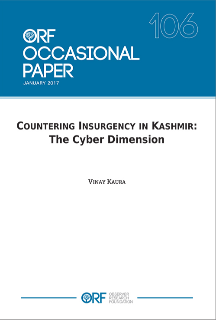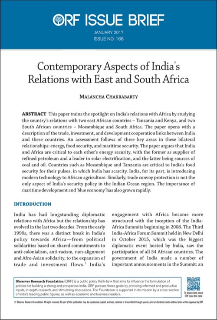Now that Anna Hazare's agitation is in the past and the nation is relieved of the tensions attending on this and related issues that he flagged, the question arises as to what needs to be done to take the momentum of the anti-graft movement forward without hiccups and pitfalls. One early recourse is for the inspiration derived from the fast for individuals to swear against bribe-giving (and possibly, bribe-taking, too). Going beyond that and addressing larger issues of corruption and corrupt practices is a Herculean task, whose contours and parameters would only get increasingly confused by the processes prescribed in the Jan Lokpal Bill of Team Anna.
Consider this for one - extending the jurisdiction of the proposed Lokpal to all sections of Government employment, or even stopping at the level of the Joint Secretaries to the Government of India. If the former course, as mooted in the Jan Lokpal Bill, were to be adopted, it would create a parallel bureaucracy, which in turn would be prone to corruption charges of the kind that the Anna movement wants eradicated. If the latter were the course, it would involve negotiations with foreign governments and entities, where secrecy of commercial dealings would prevent the officials involved from divulging more. Anyway, it is the political class that needed to be covered even more. The judicious elimination of the lower bureaucracy from the ambit of the Lokpal law under the Government draft would also leave room for lowly corruption at all levels that affect the common man more than those at the higher end of the socio-economic spectrum.
Add to this the complexities involved in the creation of Lokayukta in every State and Union Territory, and we would be having a parallel administration that derives powers, literally from the people - though under a parliamentary law that may have already been forced on the nation. Logical and unemotional thinking would advise that there are enough institutions of the Lokpal/Lokayukta kind, under the Constitution and specific legislations, both of the Centre and in individual States, to end graft. The Central Vigilance Commissioner (CVC) and the Comptroller and Auditor-General are creatures of the Constitution, deriving powers under the Statute. The CBI, the Enforcement Directorate and a host of other investigating and prosecuting agencies of the Central and State Governments derive their powers from specific pieces of law, and at times from the Supreme Court, the very watch-dog of the Government's functioning in any democracy. It is anybody's guess how the proposed Lokpal/Lokayukta would be different from all the existing agencies, whose image have successively received a beating, over the years and decades. If the idea is to cleanse them all, if nothing else, the new institutions should be replacing the existing ones, through appropriate amendments to the Constitution and the relevant laws - and not add to the confusion and contradictions already existing under the Indian scheme. Whether such a move would gather political muster is again doubtful, for valid reasons.
The nation's ills on the corruption front requires more than stop-gap fasting by an unblemished individual, or an emotional movement, where the means seems to justify the ends. While a solitary instance of the kind would motivate the people - as Anna Hazare's fasting has now done - others with lesser ideals and better strategy could end up holding the nation and the Government to ransom, aided, if not abetted by the media and other interested groups. In a nation driven with complexities and complications at birth, it is the moderation exhibited by the polity and society for most parts that has held it together. Individuals and communities, including civil society activists and organisations, should have enough space to drive home a point or two. But the will of the individual should not be allowed to run the nation amuck. If it is for a 'just and delayed cause' as Anna Hazare has now highlighted and as the larger society has acknowledged, there could be others that touch individuals and communities even more than this one in a more personal way. With the 'right' issue, strategy and timing, tactics like Team Anna's call for people gheraoing the homes of individual ministers and legislators could have led to anarchy, which the Indian State might have found hard to handle in the prevailing circumstances.
Future leaders of the Anna kind also need to remember contemporary history. There is no denying that the Government at the Centre messed up the handling of the Anna fast, the larger issue that he highlighted and the even larger issues of governance and corruption from the very word go. At one stage, it looked as if the hard-liners in Prime Minister Manmohan Singh's Government were pitching themselves hard against members of Team Anna, if only to score debating points on television talk-shows and nothing else. In that game, emotion and not logic won the day. Yet, the civil society outfits need to remind themselves that the discredited polity that they have sought to replace have their own uses, roles and responsibilities - which the former cannot shoulder unless they themselves convert to being one, and possibly go the same way as their predecessors. If nothing else, leaders like Lalu Prasad Yadav, Mulayam Yadav and Ramvilas Paswan, and the likes of Narendra Modi and Nitish Kumar, were all products of the 'JP movement' in the Seventies. Winning is one thing, keeping the momentum over a long time is another. And overdoing it could frustrate the political class, particularly the party and Government in power to the extent everything would then become fair in love and war. The Emergency of the Seventies was a product of those days. We have no leaders of the calibre and commitment to fight it back at the opportune time as in the Seventies, and we should not create an environment of permissiveness that justifies the ends of the political class, and not the rest of the nation.
(The writer is a Senior Fellow at Observer Research Foundation)
The views expressed above belong to the author(s). ORF research and analyses now available on Telegram! Click here to access our curated content — blogs, longforms and interviews.




 PREV
PREV


